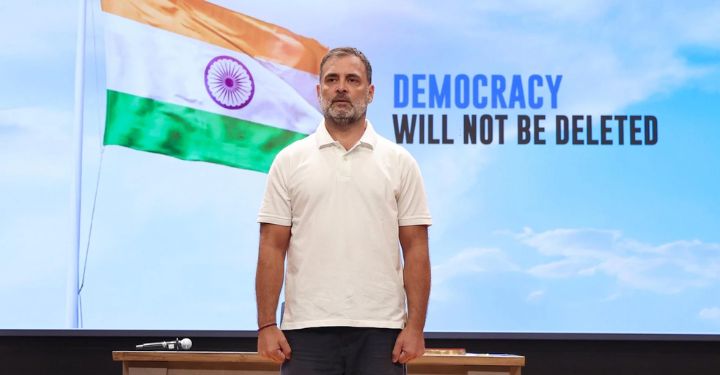In a damning revelation that raises serious concerns about the integrity of electoral rolls, the Karnataka Special Investigation Team (SIT) has uncovered a systematic attempt to manipulate voter data in Aland, a constituency in the Kalaburagi district. According to the SIT, individuals were paid ₹80 for each fake voter deletion application submitted ahead of the 2023 Karnataka Assembly elections — part of a broader, well-orchestrated voter suppression effort.
Between December 2022 and February 2023, a total of 6,018 Form 7 applications were submitted through the Election Commission’s online portal to remove names from the voter list. However, only 24 of these requests were deemed valid, with the remaining 5,994 flagged as fraudulent and subsequently rejected. Despite the rejections, the sheer scale of the submissions shocked election officials and prompted a deeper investigation.
How the Operation Worked
The SIT’s probe revealed that a data-entry operation was at the heart of the scheme. Operated from Kalaburagi, the data centre used fake mobile numbers, SIM cards purchased with forged documents, and online credentials to mass-submit the deletion requests. The individuals involved were reportedly paid ₹80 per application, indicating that around ₹4.8 lakh may have been disbursed during the operation.
The SIT traced the primary actors behind the scam to Mohammed Ashfaq, who left for Dubai shortly after being questioned by authorities, and his associate Md Akram, who managed the data centre. Several hired hands — named as Junaid, Nadeem, and Aslam — were responsible for executing the digital entries using credentials created with fake or borrowed IDs.
Evidence and Seizures
The fraudulent activities were enabled by 75 unique mobile numbers, many linked to unsuspecting individuals, including a poultry farm worker and relatives of police personnel. Investigators also discovered nearly 100 SIM cards obtained using counterfeit identity documents.
In a coordinated raid on October 17, 2025, the SIT seized seven laptops and multiple smartphones from properties associated with BJP leader Subhash Guttedar, his sons, and a chartered accountant linked to their business affairs. Authorities suspect these devices were instrumental in the operation or contain communications that could link political actors to the fraud.
Election Commission Response
The Chief Electoral Officer (CEO) of Karnataka has confirmed that the deletion applications were processed in accordance with existing procedures, which require physical verification by Booth Level Officers (BLOs) before any name is struck off. As a result, most fraudulent applications were stopped in their tracks.
Nonetheless, the incident has exposed serious vulnerabilities in the online voter registration and deletion system, particularly around the ease with which user accounts can be created and deletion forms submitted without adequate real-time verification.
Political Reactions
The revelations have reignited political tensions, with the Congress party accusing the BJP of orchestrating an attempt to disenfranchise voters, especially from communities perceived as Congress supporters. Rahul Gandhi referred to the incident as part of a larger “vote chori” (vote theft) campaign, citing Aland as a glaring example of electoral manipulation.
The ruling Congress government in Karnataka constituted the SIT on September 20, 2025, led by an Additional Director General and two Superintendent-level officers from the CID. The SIT was granted police station powers to facilitate arrests and gather evidence swiftly.
Broader Implications
While the deletion attempts were largely unsuccessful, the operation highlights a troubling pattern — one where financial incentives, access to technology, and lax digital security could together threaten the fairness of democratic processes.
According to the CID, in several cases, the same voter’s name was used in multiple deletion forms submitted through different devices. In Booth No. 32, for instance, the name “Mahananda” appeared in six deletion requests, while in Booth No. 37, the name “Godabai” was used 12 times — each through different phone numbers.
This reveals a deliberate, calculated effort to remove legitimate voters by flooding the system with deletion requests in the hope that some might bypass scrutiny.
Electoral Reforms in the Works
In light of this and similar scams, the Election Commission has introduced e-signature verification, requiring that any online application (Forms 6, 7, or 8) be authenticated using Aadhaar-linked mobile numbers. This step is expected to tighten security and deter misuse by ensuring only verified users can submit applications.
The CEO’s office has also called for access to complete logs from the Election Commission’s national server, including IP addresses, user activity, and login histories to assist ongoing investigations.
The Road Ahead
The SIT continues to probe:
- The origin and flow of funds used to pay ₹80 per deletion request.
- The network of individuals involved across multiple layers — from those submitting the forms to those financing them.
- Whether similar operations were attempted in other constituencies.
- Possible collusion from insiders with access to the EC portal.
As the probe deepens, legal action against key suspects is expected. The CID has already identified several persons of interest and has requested help from the Department of Telecommunications and the EC to trace IP and mobile data.
Conclusion
The Aland voter deletion scandal may have failed to succeed in removing thousands of voters from the rolls, but its discovery underscores a critical vulnerability in India’s democratic infrastructure. The case has become a rallying point for calls to overhaul the country’s electoral verification systems and signals that the future of free and fair elections in the digital age will depend not only on vigilance but also on robust cyber safeguards.





More Stories
Stranded Before the Festival: Air India Flight Cancellation Leaves Dozens in Milan Without a Way Home for Deepavali
Massive Gujarat Cabinet Overhaul: Harsh Sanghavi Promoted, Rivaba Jadeja Makes Political Debut
India Rejects Trump’s Statement on Russian Oil, Reaffirms Energy Sovereignty